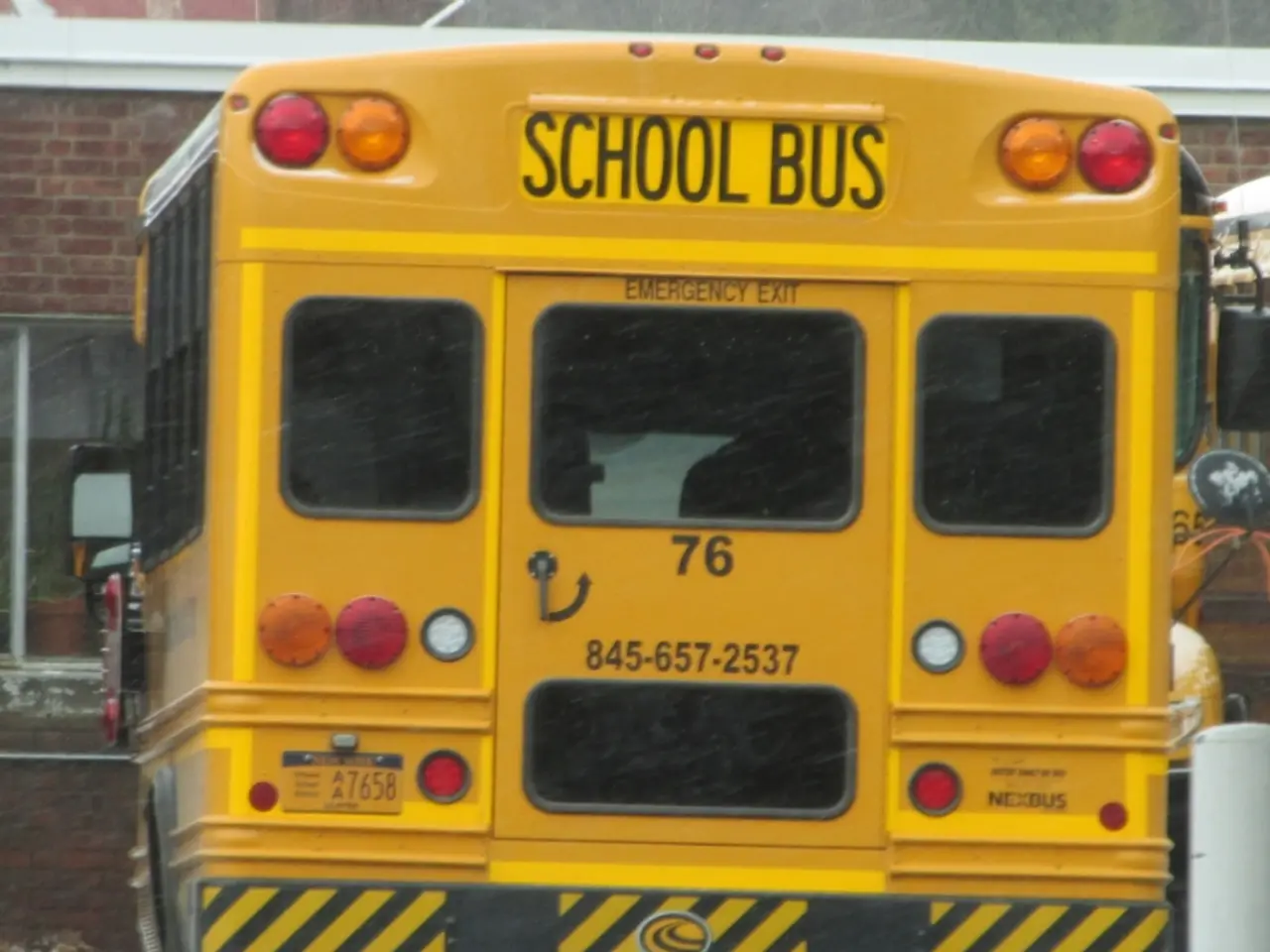Closure of second private school in Hong Kong leaves pupils and parents in uncertain circumstances
Inno Secondary School in Hong Kong Suspended by Education Bureau
Inno Secondary School, a private school located in Kowloon Tong, has been suspended by the Education Bureau due to unsatisfactory management and financial issues, as well as questionable collaborations with mainland Chinese education agencies [1][2][3]. The school's suspension was announced on Monday, marking a significant disruption for students and parents.
The school's financial troubles include a failure to pay rent since March, which has contributed to its unsatisfactory financial situation [1]. In addition, the Education Bureau rejected the school's application to register a new campus in Hung Hom, citing concerns about its management and financial status [1][2].
The school's controversial collaborations with mainland Chinese education agencies and tutorial centers were also a factor in the suspension. These collaborations were seen as part of a crackdown on "shell schools" that improperly help non-local students gain subsidized university eligibility [1][3].
The Kowloon Tong campus is set to cease operations after the 2024-25 academic year. However, since the bureau did not receive a formal registration application for the new Hung Hom campus, the school’s licence will expire on September 30, 2025 [1][3].
For students currently enrolled, the situation has caused uncertainty and disruption. Some parents have paid large fees and are struggling to get information, with at least one parent considering relocating their child back to the mainland due to the suspension and lack of clear alternatives in Hong Kong [2]. The school’s new purported location in Hung Hom was found locked and empty despite notices claiming the move [2].
In summary, Inno Secondary School’s suspension results from financial difficulties, failure to comply with licensing conditions, and problematic mainland collaborations. The next steps involve students needing to seek alternative schooling arrangements, potentially including returning to mainland China, as the school will stop operating in Hong Kong after this academic year [1][2][3].
Parents are still seeking clarification about the school's current status and future plans following its suspension [2]. Despite repeated efforts, some parents are unable to reach the institution following its suspension [2]. The Education Bureau has not received any application from Inno Secondary School to register its new premises in Hung Hom [1][3].
The new Hung Hom campus had displays of past students' academic achievements on its walls, suggesting it was meant to be operational [2]. However, these plans seem to have been put on hold indefinitely due to the school's suspension.
[1] South China Morning Post. (2021, July 28). Inno Secondary School suspended by Hong Kong's Education Bureau over unsatisfactory management and financial situation. Retrieved from https://www.scmp.com/news/hong-kong/education/article/3145749/inno-secondary-school-suspended-hong-kong-education
[2] South China Morning Post. (2021, July 29). Parents of Inno Secondary School students seek clarification over school's future plans. Retrieved from https://www.scmp.com/news/hong-kong/education/article/3145784/parents-inno-secondary-school-students-seek-clarification
[3] South China Morning Post. (2021, July 30). Inno Secondary School's new Hung Hom campus found locked and empty as parents seek clarification. Retrieved from https://www.scmp.com/news/hong-kong/education/article/3145847/inno-secondary-schools-new-hung-hom-campus-found-locked
- The suspension of Inno Secondary School, a private institution in Hong Kong, has raised questions about the importance of education quality and self-development, as it was shut down due to unsatisfactory management, financial issues, and political entanglements.
- Amidst the general news of educational instability in Hong Kong, the suspension of Inno Secondary School can be seen as a reflection of the broader issues in the politics of education and self-development, as it highlights the need for transparency and accountability in educational institutions.




